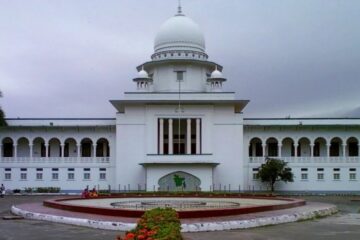The government has drafted a new telecom law seeking to permanently ban internet shutdowns and abolish the controversial National Telecommunication Monitoring Center (NTMC), marking a major shift in the country’s digital governance framework.
The draft Bangladesh Telecommunication Ordinance 2025, uploaded on the Posts and Telecommunications Division’s website on November 4, proposed that “no telecommunication connection, related service or internet access shall be shut down, disrupted, or restricted under any circumstance.”
Officials said the aim was to eliminate arbitrary power to block the internet and overhaul existing surveillance practices long criticized by rights groups and privacy advocates.
The NTMC, often accused of enabling unlawful monitoring and enforced disappearances, will be scrapped under the proposed law.
A senior official involved in the drafting process told the Dhaka Tribune that the new ordinance “removes the concept of surveillance altogether.”
“Section 97 of the previous law was used to justify extensive monitoring of civilian communications,” the official said. “No military or security agency will be allowed to intercept communications without legal authorization, and any unauthorized interception will carry strict punishment.”
Instead of blanket surveillance, the draft introduced the concept of “lawful interception,” which will only be allowed with prior approval from a court or quasi-judicial council for a specific purpose and limited duration, following clear principles of necessity and accountability.
Data from calls, messages, or internet traffic may only be intercepted for criminal investigations, protection of lives, or national security—not for political or ideological reasons.
Information collected under lawful interception may be admissible in court, but intelligence-gathered data without judicial approval will not be accepted as evidence.
Technology expert and Voice for Reform coordinator Fahim Mashroor welcomed the inclusion of an explicit ban on internet shutdowns.
“This is a positive step toward digital rights,” Mashroor said. “However, the definition of lawful interception needs to be more specific. Court authorization should be mandatory for all interceptions to prevent misuse.”
The 102-section draft ordinance is now open for public feedback until November 15. Citizens can send comments to the Posts and Telecommunications Division by post or email.
After the consultation period, the draft will be discussed in a multi-stakeholder meeting before being sent to the Legislative Division for vetting and then to the Cabinet for approval.
Officials said the law aims to “ensure citizens’ right to uninterrupted communication” and to replace the existing framework that enabled arbitrary internet shutdowns and mass surveillance.
“This is about accountability and reform,” an official said. “The state that once monitored citizens now wants to guarantee their freedom to communicate.”



